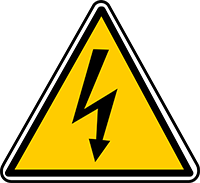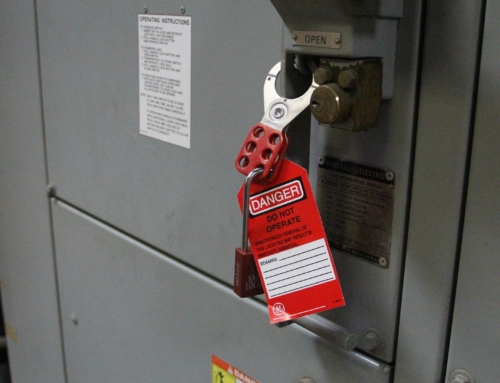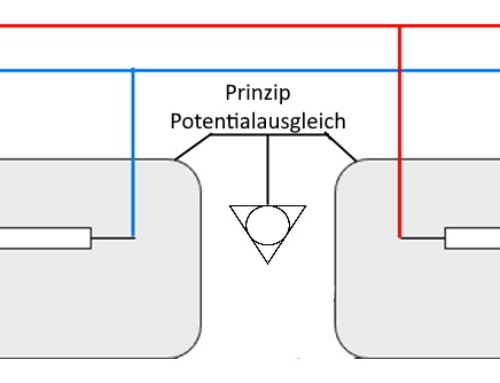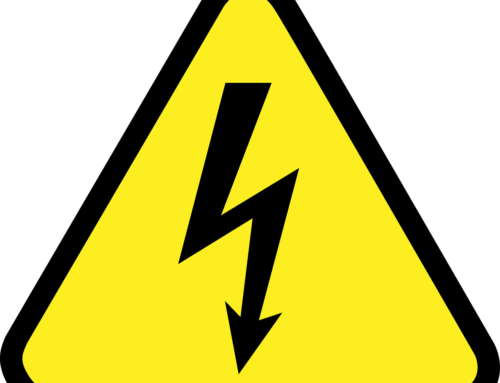A general definition of the electrical specialist (ES)
The knowledge of the different roles and competence levels in electrical engineering is also relevant for the specialist knowledge of the electrical specialist.
According to DGUV regulation 3 is an electrical specialist,
“who, on the basis of his or her professional training, knowledge and experience and knowledge of the relevant regulations, is able to assess the work assigned to him or her and recognize possible hazards.”
The electrical specialist is therefore not a formal qualification, but more of a competence status. This is exactly why the maintenance of professional competence exists. This status primarily relates to the electrical safety of man and machine. One is appointed as an electrical specialist by one’s employer, and may even be formally appointed. Everyone, including you, needs an orientation period to learn a company’s processes and culture; electrical engineering is no exception. After all, the required knowledge and experience also include knowledge of the company, so you’d better not neglect that. In addition to the maintenance of professional competence of an electrical specialist, a company should also ensure adequate onboarding in their company during the induction phase.
Accordingly, the general consensus is that specialized vocational training or a degree is merely a basis, i.e. a kind of license to continue learning. Thus, the electrical specialist is defined in the European standard 50110 as
“a person with appropriate technical training, knowledge, and experience so that he or she can recognize and avoid hazards that may be posed by electricity.”
The emphasis of the above definition is more on professional practical experience than on purely formal education. The status of electrical specialist may not be applied to all electrical engineering. Although the maintenance of professional competence of the electrical specialist is usually made quite general, it is advisable to talk to the provider about possible areas of focus if there are several employees.
The areas of expertise of the electrical specialist (ES)
There are different fields of electrical engineering and thus also different areas of expertise of an electrical specialist. For example, there is the electrical specialist for building installations according to VDE, there is the electrical specialist for high-voltage systems, the electrical specialist for wind turbines, the electrical specialist for photovoltaic systems and so on. No one is an electrical specialist for everything, including you.
To remember: You can also lose the status of an electrical specialist. This is especially the case if you have not worked in the actual field for several years and are no longer familiar with the subject matter. An electrical engineering apprenticeship or degree is only the basis, but it is not sufficient for you to be hired directly as an electrical specialist.
Our recommendation in this regard: There are also courses offered by various providers, such as the aforementioned “
Maintenance of professional competence electrical specialist
“, are offered. More information about this can be found on our homepage
www.tcs-engineering.de
We offer various open seminars as well as customer-specific in-house seminars.
The electrical specialist for defined tasks (ESfdt) and their areas of expertise
To remember: Even though an electrical specialist, or ES for short, can only be considered as such for a defined area, this is not the same as the concept of an
electrical specialist for defined tasks
ESfdt for short.
However, the ESfdt may also work independently. For example, it may
- perform electrotechnical work,
- including the disconnection and commissioning of electrotechnical systems or equipment,
without the need for an ES to provide management and oversight.
Thus, the ESfdt is considered an electrical specialist in the sense of DGUV regulation 3 when performing its tasks – but with the addition of “for defined tasks“. In other words, only for those tasks for which they have work instructions, e.g. in the form of a detailed checklist, and for those activities for which they have already been instructed.
Caution: A new or different system alone requires renewed instruction by you as the electrical specialist. If something deviates from the work instruction, it’s “End!” for the ESfdt and an ESfdt must be called in. Thus, a NOT provided, i.e. free troubleshooting, may only be performed by an electrical specialist. The ESfdt should also be kept up to date on a regular basis. Attending a maintenance of professional competence course is definitely an option. However, we are also happy to provide you with specialized offers.
The electrotechnically instructed person (EiP)
Next, the definition of the
electrotechnically instructed person
, abbreviated:
EiP
will be explained. According to § 3 paragraph 1 of DGUV regulation 3 all electrical work must be carried out by or under the direction and supervision of an electrical specialist. For example, electrotechnically instructed persons work under your supervision. In other words, with you as the electrical specialist under whose direction and supervision work is performed.
In the case of the EiP, successful qualification is assumed if
- it about the tasks assigned to it in general as well as in detail
- and about the possible dangers in case of improper action
- and has been adequately instructed and, if necessary, trained in the necessary protective equipment and protective measures.
Seminars for electrotechnically instructed persons are usually offered for one or two days. This involves the basic terminology and potential hazards of electrical engineering.
To remember: When using EiPs, also make sure that they receive a general job briefing before they start working under your direction and supervision.
The specialist areas of the electrotechnically instructed person (EiP)
The EiP may also act independently, but you must be approachable as an electrical specialist.
Caution: The EiP may neither disconnect nor commission systems or equipment. The work results of the EiP must be checked by you as the responsible electrical specialist.
For example, you can commission an EiP to wire an entire system according to a circuit diagram if you, as the ES responsible for the work, trust them to do so. However, the system must have been enabled beforehand. In addition, the work of the EiP must be checked and approved by you as the electrical specialist before commissioning.. The EiP is merely a vicarious agent here: You, as the electrical specialist, are responsible for this work.
To remember: Here too, however, the overall responsibility always lies with the entrepreneur.
The chief responsible electrical specialist (CRES)
Now to the “
chief responsible electrical specialist”, for short
short
CRES
In addition to the classic model, e.g. employing a master electrician as workshop or plant manager, there is increasingly the concept of the chief responsible electrical specialist as defined in VDE 1000 Part 10. The model is particularly common in large companies. If the entrepreneur or the responsible management cannot or does not want to take over the overall responsibility in the area of electrical safety, e.g. for reasons of technical background or due to work priorities, this can be transferred to a suitable person, e.g. to the so-called chief responsible electrical specialist the CRES.
The areas of expertise of the chief responsible electrical specialist (CRES)
The entrepreneurial duties assumed by the CRES are basically, but not exhaustively, the
- Supervision,
- Duty to control,
- Organizational obligation,
- Duty of Care,
- Road Safety Obligation,
- The chief responsible electrical specialist is not subject to instructions from the company management.
If the chief responsible electrical specialist has been assigned in areas of the entrepreneur’s duties, then he/she assumes tasks related to electrical safety in the company. These tasks/duties of the CRES are defined in advance. This means that the CRES is authorized to issue instructions to every employee – including members of the management – in matters of electrical safety.
To note: The CRES is therefore the ultimate authority on electrical safety in its area of responsibility and is therefore autonomous.
You can find more information here
If you would like to know more about the different roles, in particular those of the EiP, ES, CRES and especially those of the CRES and how they interact, I recommend our publications, for example the audio book “Die Verantwortliche Elektrofachkraft: CRES-Struktur und Betriebliche Elektrosicherheit für Unternehmer, Fach- und Führungskräfte”. Information and sources of supply can be found on the usual audio book portals as well as on the homepage tcs-engineering.de










Leave A Comment